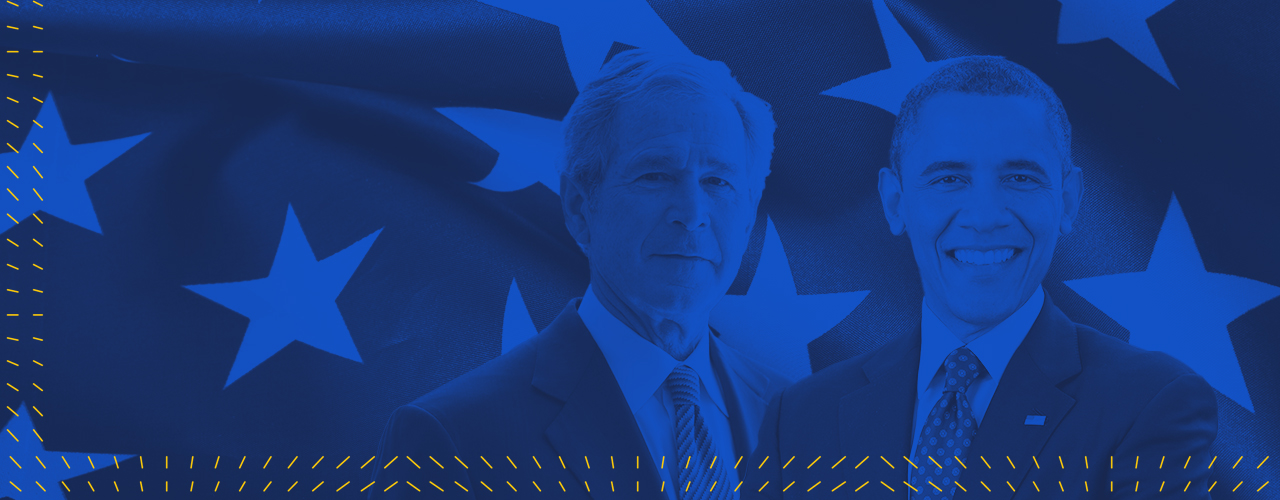Miller Center 50th anniversary
An antidote to partisan rancor, the Miller Center has shone a light on democracy for half a century
University campuses roiled by student demonstrations over a distant and controversial war. A president accused of committing crimes to try to stay in office. A nation split by bitter political polarization and social and cultural fractures.
It may sound like today. But it also describes the turbulent years leading to the Miller Center of Public Affairs opening in 1975. Burkett Miller, a graduate of the University of Virginia School of Law, donated the funds to create the Miller Center of Public Affairs in response to the partisan rancor he saw developing across the nation.
Miller envisioned a place where government leaders, scholars, and the public could come together for discussions grounded in history to find consensus solutions. Even as his concerns about polarization still resonate five decades later, his vision for a national meeting place has flourished.
Today, the Miller Center provides the nation’s most complete understanding of the U.S. presidency and offers a nonpartisan space for civil debate on topics of national importance.
The Center’s unique historical resources offer insights into how previous presidential administrations dealt with complex issues. Public events convene scholars, government officials, journalists, and thought leaders to encourage dialogue across differences about the most important issues facing the presidency, and the nation. And the Center’s digital headquarters, millercenter.org, is the leading online resource for information about the American presidency. Millions of users visit every year for in-depth research and rich archival materials.
As we embark on a year-long celebration culminating in the Center’s 50th anniversary in September 2025, we share some of the major milestones from the Center’s past five decades.
1975
After several years of discussion with the University of Virginia, Burkett Miller, a 1914 graduate of the UVA School of Law, founds the Miller Center in memory of his father, White Burkett Miller.
The location chosen for the Miller Center is the historic Faulkner House, completed in 1856 and located just west of the University of Virginia’s Central Grounds.
Frederick E. Nolting Jr., ambassador to South Vietnam from 1961 to 1963 under President John F. Kennedy, serves as the Center’s first director from 1975 to 1977.
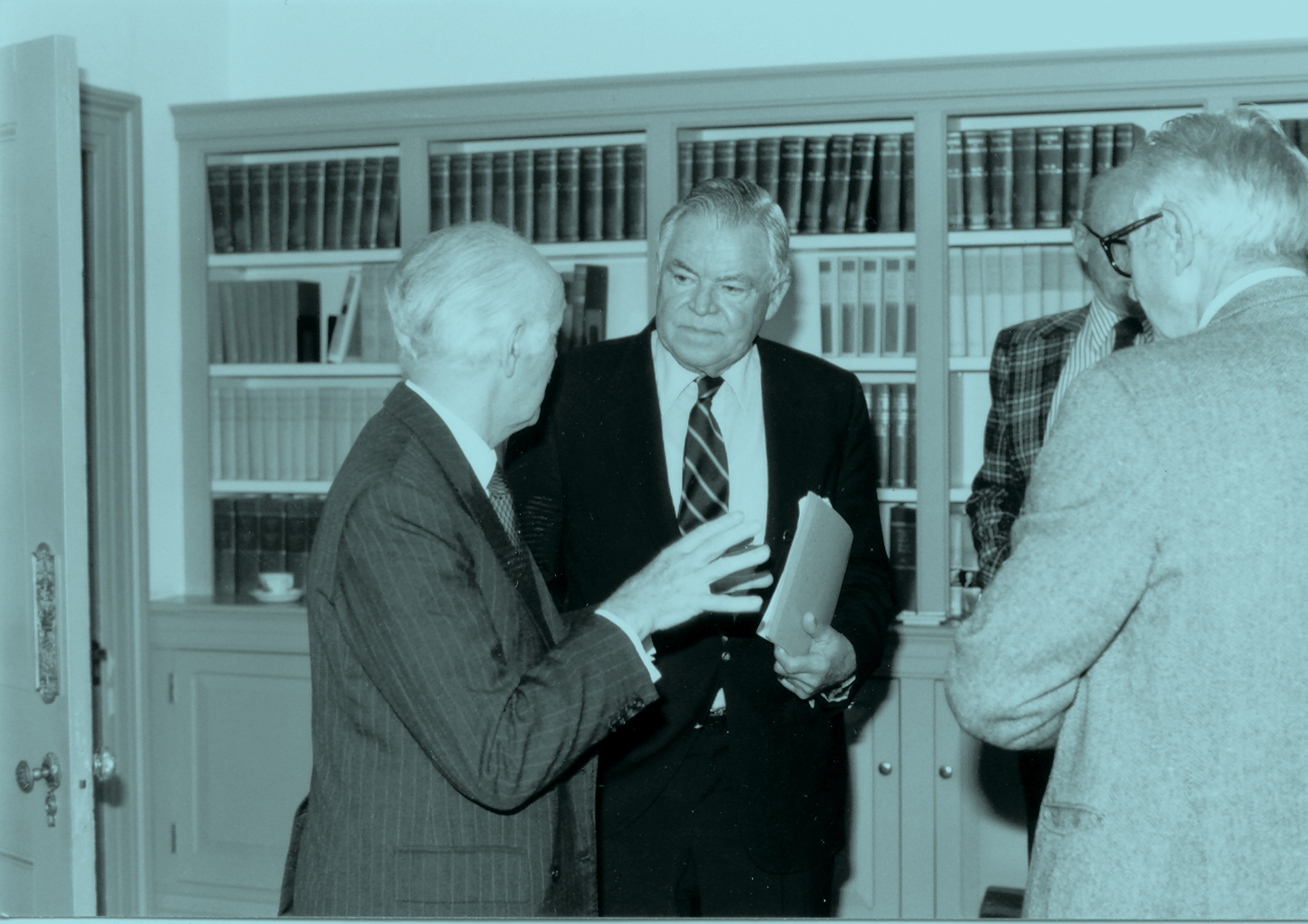
1977
Kenneth W. Thompson, a scholar of international relations and the presidency, serves as the Center’s director for the next 21 years, until 1998. Under Thompson’s leadership, key initiatives come to fruition, including the Forum Program (a series of public events featuring public officials, journalists, and scholars) and numerous bipartisan national commissions examining key contemporary issues.
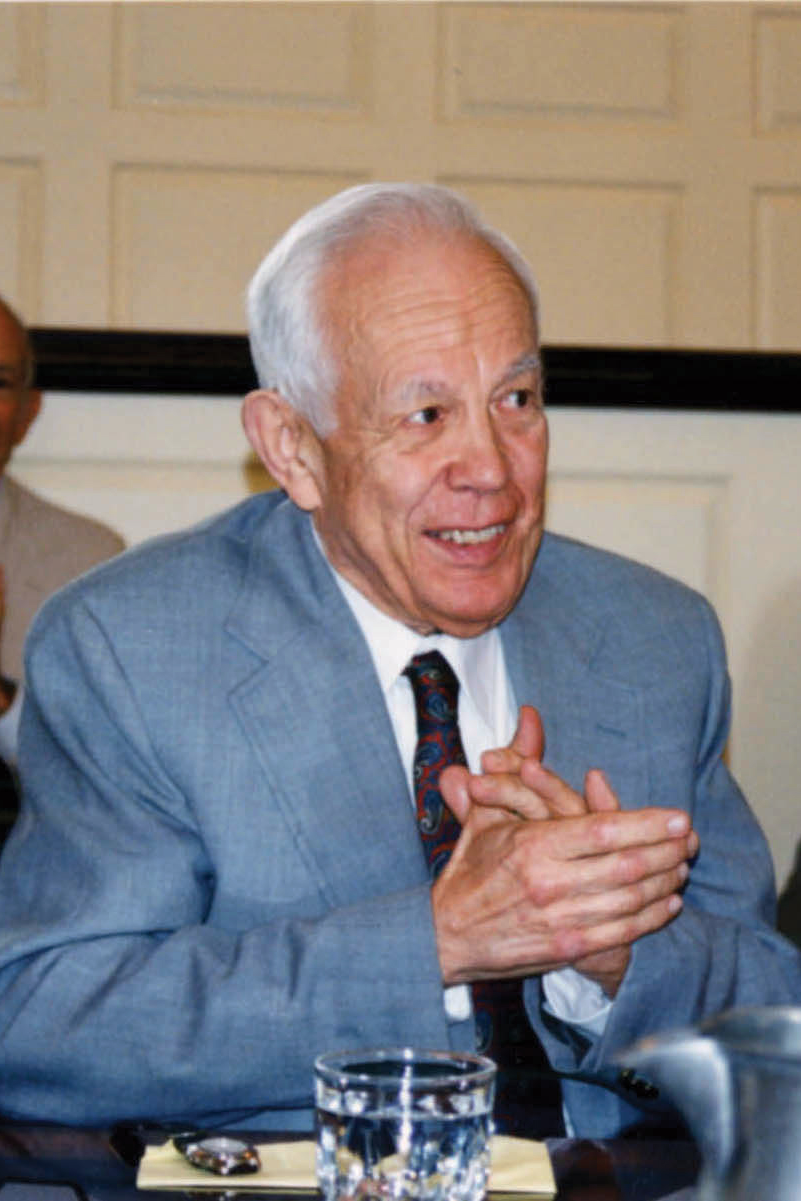
In April 1977, Miller Center faculty and other University of Virginia scholars record a day-long symposium with senior Ford administration staffers, including Richard Cheney, Donald Rumsfeld, and Brent Scowcroft. The success of this “unusually frank and serious discussion” inspires the Center to launch the Presidential Oral History Program. To date, the oral history program has conducted in-depth interviews with more than 800 members of former presidential administrations and published oral history projects for every president from Ford through George W. Bush, with Barack Obama and Donald Trump projects underway. The Center has also published several special oral history projects, including one focused on Senator Edward Kennedy and one nearing completion on Hillary Rodham Clinton’s term as secretary of state.
1981
The Center’s first national bipartisan commission focuses on presidential press conferences, recommending ways to increase public understanding. The Center’s second national commission, on improving the presidential nominating process, takes place in 1982.
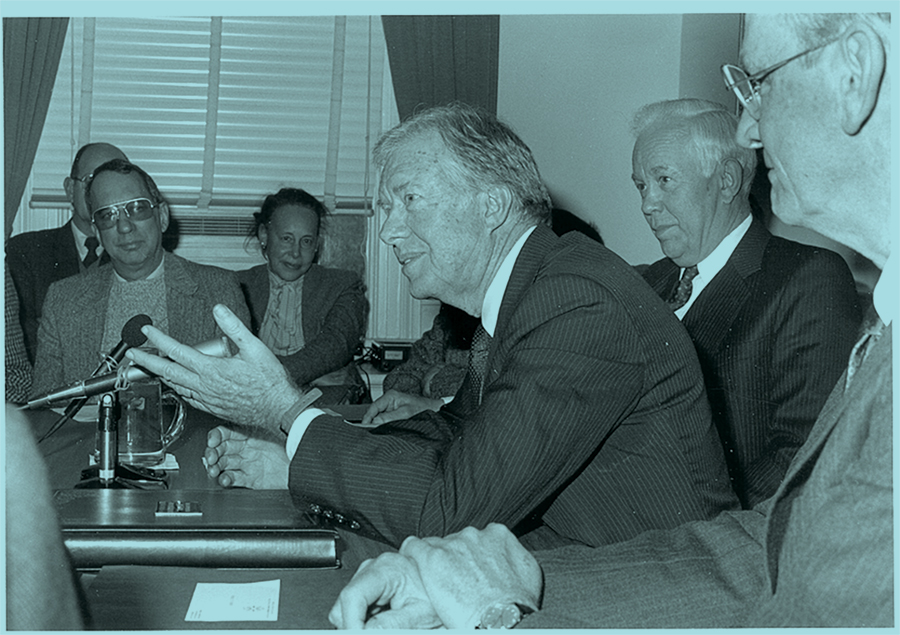
The Center also begins an oral history project on the Jimmy Carter presidency, including five hours of interviews with the former president himself.
1989
The Center begins a 13-month project to build the Newman Pavilion, honoring J. Wilson Newman, a longtime Governing Council member.
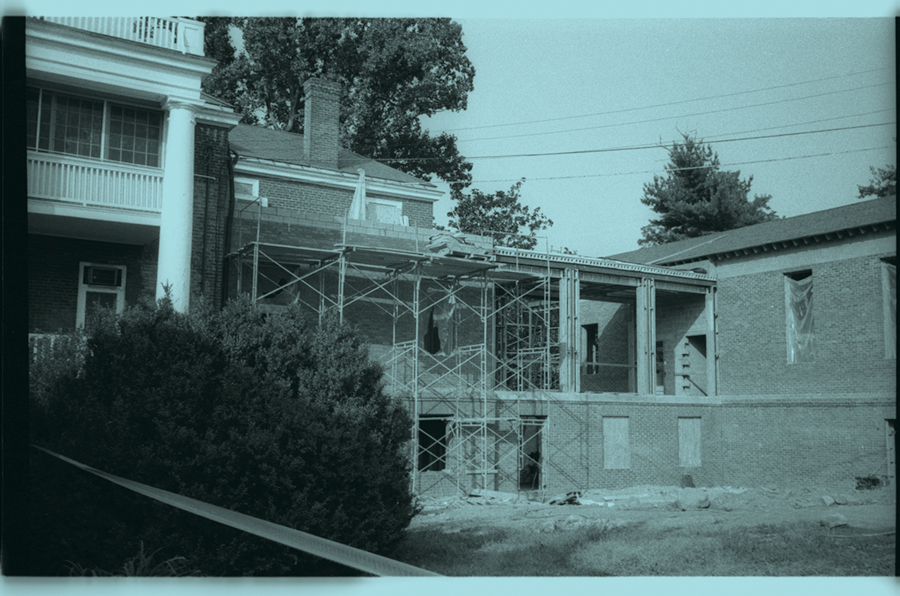
The Newman Pavilion houses an expanded public event space, the Forum Room, modeled on the architecture of Virgina’s House of Burgesses in Williamsburg.
National commissions address presidential disability and the 25th Amendment (1988), the relationship between science and government (1989), the role of vice presidents (1992), the selection of federal judges (1996), and the separation of powers (1998).
1999
Philip Zelikow, a former National Security Council and State Department official and professor at Harvard’s Kennedy School of Government, is recruited to become the Center’s third director.
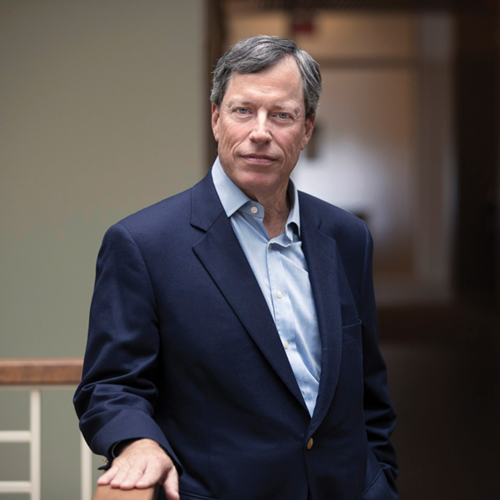
Zelikow expands the Presidential Oral History Program and creates the Presidential Recordings Program.
2001
Following the contested 2000 election, Zelikow leads the bipartisan National Commission on Federal Election Reform, cochaired by Presidents Carter and Ford. Proposed election reforms are adopted in landmark election reform legislation, the Help America Vote Act of 2002.
2003
Zelikow takes a public service leave from the Center to serve as executive director of the National Commission on Terrorist Attacks Upon the United States, commonly known as the 9/11 Commission. He resumes his directorship in 2004 on completion of The 9/11 Commission Report.
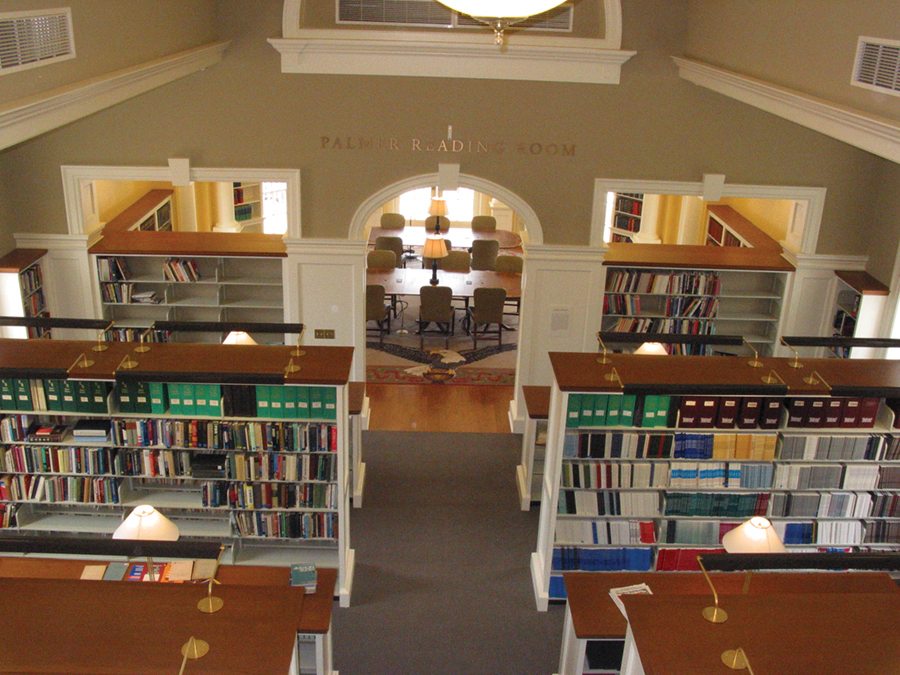
The Kenneth W. Thompson Pavilion and the Scripps Library, honoring the generosity of the Edward W. and Betty Knight Scripps Foundation, are added to Faulkner House.
2004
George Gilliam, a former attorney and UVA historian, becomes chair of the Forum Program. The Center’s public programs are broadcast on numerous PBS stations, featuring prominent government officials, journalists, and other public figures.
2006
Former Virginia Governor Gerald L. Baliles serves as the fourth director of the Miller Center, designing conferences and programs that emphasize foreign and domestic economic policy.
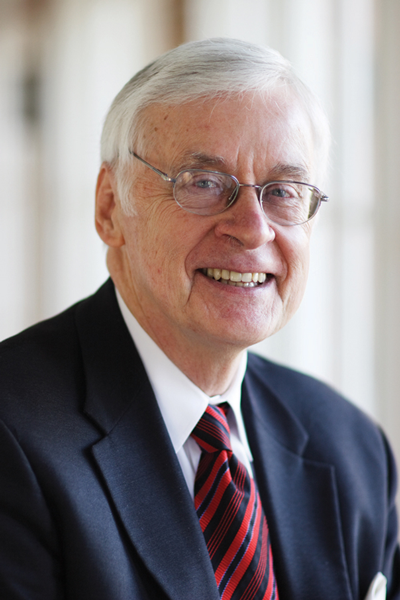
Former Secretaries of State James A. Baker III and Warren Christopher cochair the Miller Center’s bipartisan National War Powers Commission. The commission’s 2008 report calls for the repeal and replacement of the 1973 War Powers Resolution.
Additional national commissions make bipartisan recommendations for lawmakers on American manufacturing (2013), immigration reform (2014), and health care cost containment (2014).
2012
Douglas Blackmon, a Wall Street Journal correspondent and Pulitzer Prize winner, takes over as director of public programs. He produces and hosts American Forum, a weekly public affairs television show that extends the reach of the Center’s programs to 85 percent of PBS stations in the United States.
2014
Senators John McCain (R-AZ) and Tim Kaine (D-VA) introduce the War Powers Consultation Act, based on the 2008 recommendations from the Miller Center’s National War Powers Commission. Although never enacted, the commission’s recommendations become the basis for multiple successive Authorizations for the Use of Military Force passed by successive sessions of Congress for ongoing wars in the Middle East.
2015
William J. Antholis, a former State Department and National Security Council official and managing director of the Brookings Institution, joins the Center as director and CEO.
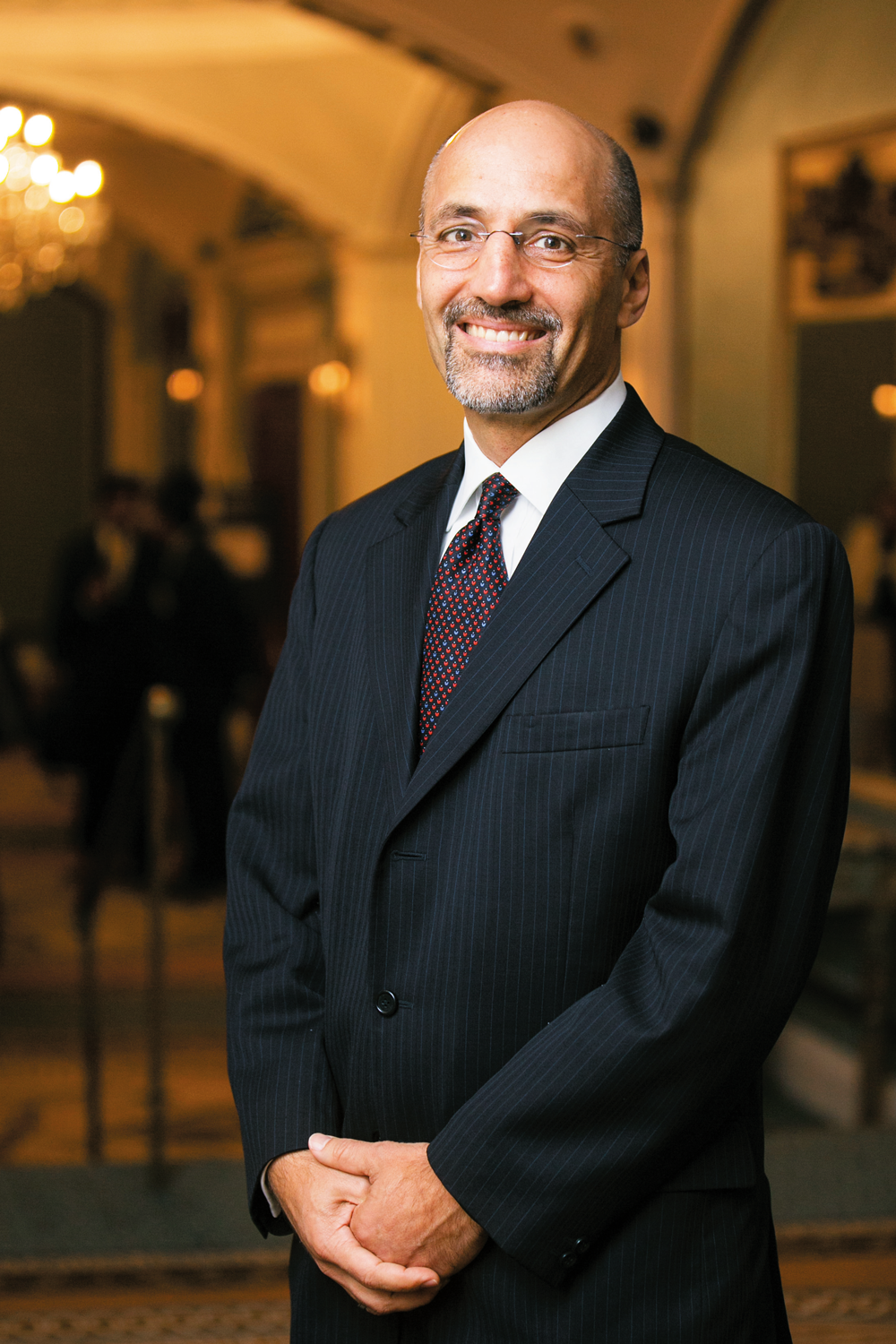
The Center embarks on a major undertaking to understand the history and dynamics of presidential transitions, called the First Year Project 2017, with a goal of helping guide an incoming administration of either party. The project produces more than 60 essays and hosts dozens of events at the Miller Center and across the country. Officials of both major party campaigns share best practices for presidential transitions.
2016
The Center begins regularly promoting its experts to provide important context and commentary to national journalists who cover the presidency, politics, and foreign policy. Today, Miller Center experts and scholars are on “speed dial” in the nation’s most important newsrooms. They appear in major media outlets on average more than 40 times every month.
2018
The Miller Center engages with the UVA College of Arts and Sciences Democracy Initiative, eventually helping to shape the Karsh Institute of Democracy. The institute’s executive director, Melody Barnes, is the J. Wilson Newman Professor of Governance at the Miller Center.
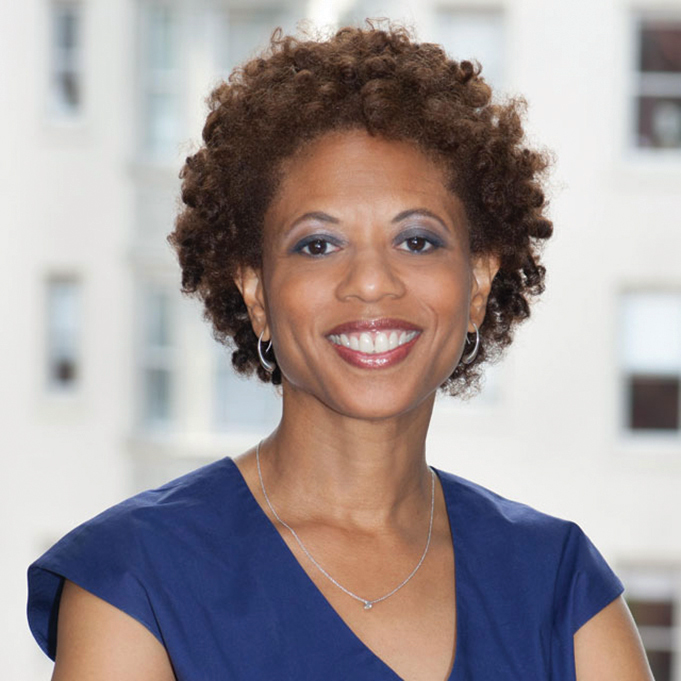
The Center establishes a senior fellows program to expand its areas of expertise by recruiting both faculty and government practitioners.
2019
In celebration of the bicentennial of the founding of the University of Virginia, the Center hosts the Presidential Ideas Festival. This three-day series of public events features former cabinet officials and White House officials from Democratic and Republican administrations as well as journalists, academics, and other public figures. Taking place in Old Cabell Hall and across the University, it culminates with a 90-minute lecture by former President Bill Clinton. Later in the year, the Center releases transcripts from the George W. Bush oral history project.
The Center launches an oral history project on the Barack Obama administration.
2020
When the COVID pandemic forces the shutdown of in-person public events in the spring, the Center is among the first think tanks and public institutions in the nation to pivot to presenting events as online webinars. The success of this initiative prompts the Center to make webinar and YouTube broadcasts a permanent feature of all public events. The Center also helps establish a COVID Commission Planning Group, which produces an exhaustive study of the government’s response to the pandemic.
The Center and VPM coproduce the PBS documentary Statecraft: The Bush 41 Team. The Center also partners with the Lyndon Baines Johnson Presidential Library and Foundation to create the LBJ Telephone Tapes website, lbjtapes.org.
Anticipating a contested presidential election in 2020, the Center and UVA’s Institute of Democracy cohost the “Election and Its Aftermath” blog and event series that help journalists and the general public make sense of the most divisive election since 1860.
2021
The Center establishes two new academic research projects. The Project on Democracy and Capitalism examines the intersection of free markets, free peoples, and free societies. The Health Care Policy Project is focused on domestic health policy and global health security.
2022
As Russia launches an invasion into Ukraine, the Center begins to host a series of private and public seminars on the changing geopolitical landscape. The Ukraine War Room becomes a signature offering, bringing together senior policymakers, academics, and journalists trying to assess the new cold wars.
The Center launches an annual James C. Lehrer Lecture in honor of the late PBS NewsHour cofounder and anchor and former member of the Miller Center Governing Council. PBS NewsHour anchor Judy Woodruff is the inaugural speaker, launching a partnership with the NewsHour each year.
2023
The Center holds a major conference, “Toward a More Responsible and Effective Presidency,” featuring a bipartisan group of scholars, government practitioners, journalists, and engaged citizens who examine potential areas for presidential reform.
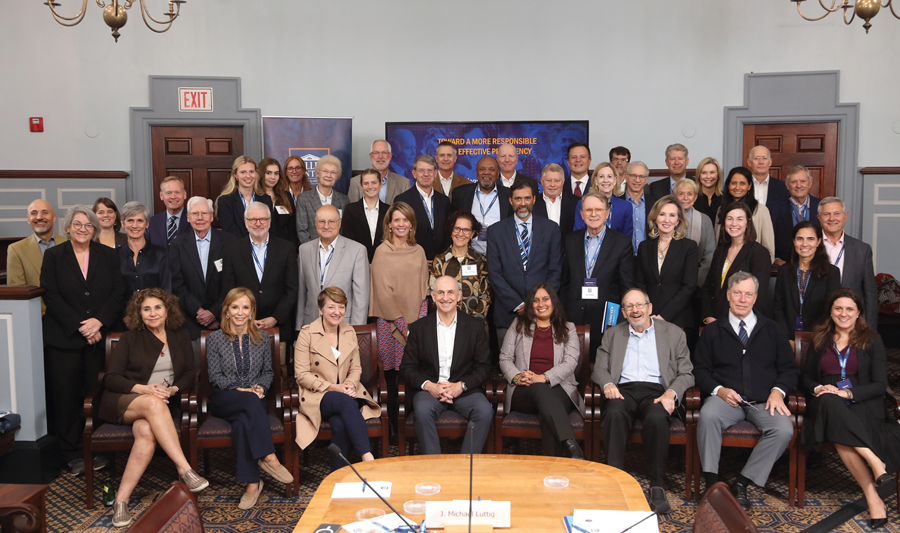
The Center also launches an initiative to post video “shorts” from every event on social media, generating nearly 1 million total views so far on YouTube and Instagram.
2024
The Center launches the Ripples of Hope Project to identify and utilize tools that can make the U.S. president and other democratic leaders more effective and contribute to an America that can better compete and cooperate around the world.

